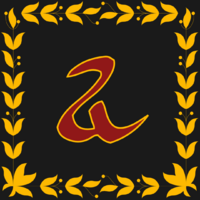Charnean Army
This article is incomplete because it is pending further input from participants, or it is a work-in-progress by one author. Please comment on this article's talk page to share your input, comments and questions. Note: To contribute to this article, you may need to seek help from the author(s) of this page. |
| Charnean Army | |
|---|---|
| ⵉⵖⵔⵓⴷⴰⵏ ⵞⴰⵔⵏⴰ ⴰⵊⵁⴰⵏⴰⵏ Iɤrudan Charna Ajhanan | |
 Flag of the Charnean Army | |
| Motto | Tachyata (Acronym for the phrase Tassɑɤen Charna Yalla Tarmat meaning "Charnean unity is not negotiable") |
| Founded | 1 October 1921 |
| Current form | 2023 |
| Service branches | Central Army Army Air Service Border Guards |
| Headquarters | Agnannet, Charnea |
| Leadership | |
| Commander-in-chief | Amina N'Okha |
| Minister of Defense | Tinkerbas Bekkai |
| Chief-of-Staff | General Rezkou Goma |
| Personnel | |
| Military age | 18 |
| Conscription | 18 months |
| Active personnel | 330,000 |
| Reserve personnel | 245,000 |
| Expenditure | |
| Budget | $30 billion (2023) |
| Percent of GDP | 5% (2023) |
| Industry | |
| Foreign suppliers | Mutul Elatia Onekawa-Nukanoa |
| Related articles | |
| Ranks | Military ranks of Charnea |
The Charnean Army (Tamashek: ⵉⵖⵔⵓⴷⴰⵏ ⵞⴰⵔⵏⴰ ⴰⵊⵁⴰⵏⴰⵏ, Iɤrudan Charna Ajhanan, ICA) is the combined military force of the Charnean state comprising both ground-based and aerial armed forces. Amina N'Okha serves as the formal commander-in-chief of the ICA, while its day to day operations are overseen by Minister of Defense Tinkerbas Bekkai and commanded by ICA Chief-of-Staff Rezkou Goma. The current structure of the ICA is the result of a series of sweeping military reforms that took place following the death of its former commander Martial Martuf Lamine in December 2022 and the ensuing political turmoil which took place within the Army and the broader state defense apparatus. Reforms included a reorganization of the ICA general staff and high command from the ground up, a significant reduction of the officer corps and a consolidation of several previously separate organs into more centralized command and logistics structures. The ICA is currently comprised of the Central Army, incorporating formerly independent bodies such as the Armored Corps and the Counterinsurgency Corps, the Army Air Service which functions as the ICA's aerial warfare and air defense force, and the military Border Guards which make up the lightly armed border patrol and customs enforcement forces. Charnean military intelligence organs such as the ASA fall under the authority of the ICA general staff.
Manpower
The majority of the peacetime active forces are volunteer professional soldiers hailing from nomadic Tenerian populations indigenous to the Ninva desert. These demographics have historically joined the ICA in large numbers due to the general poverty and lack of work opportunities available to the nomadic communities of the Ninva, deeply influencing the way of life of the nomads as well as the ICA's military culture. The overwhelming majority of nomads in the army are career soldiers for whom service in the ICA is their primary means of income and a represents a lifelong career. Being accustomed to a hardy life in desert conditions with few modern comforts, the Tenerian nomads are thought to be well suited to life in the Charnean Army. However, the nomads in Charnea suffer from a general lack of good education and in particular a dearth the advanced degrees needed to operate sophisticated modern military hardware. This shortfall motivated the foundation of the Charnean Army Vocational School in Awakar City, an institute established to streamline the learning process for nomad recruits to achieve suitable levels of education and technical expertise needed to operate a modern military force. 275,000 of the 330,000 active personnel of the ICA are Tenerian nomads, with an additional 50,000 registered as reservists, accounting for roughly one in three adult male nomads. In the past, major conflicts such as the Ninvite War have seen the mobilization of the entire male population and even portions of the female contingent of the nomads. As a result, the history of modern warfare in Charnea is reflected in the demographic fluctuations of the nomad population.
Between half and three quarters of the ICA's total manpower, including most reservists, are conscripts called up for a period of compulsory national service between the ages of 18 and 35 and recalled for refresher training every five to eight years.